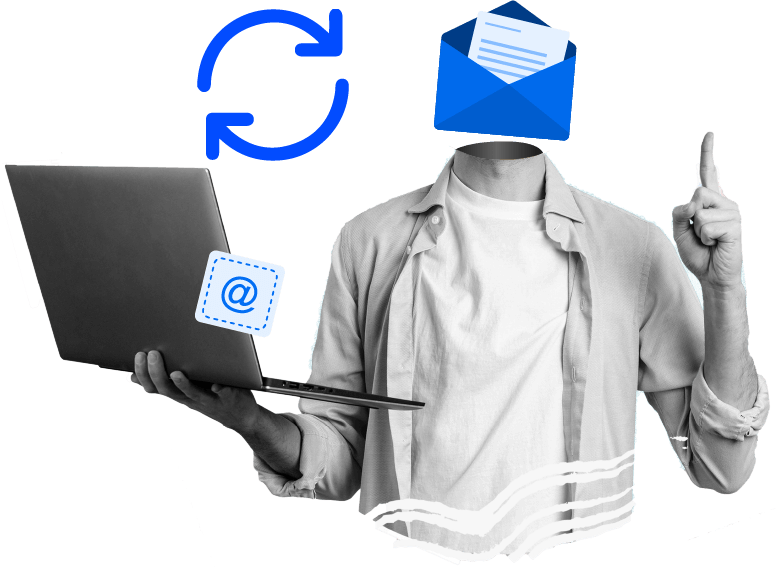1. What Is Performance Management?
This process is often set within the context of overarching team and company objectives so that individuals can see how their contribution fits into the big picture as a whole and team leaders can discover where there are gaps in skills, training, or incentivization.
2. Reasons Why Performance Management Is Important

2.1. It Assists HR with Recruiting
One of the key reasons why the role of performance management is important to human resources teams is that it assists with recruiting. By assessing the areas where there is a capabilities deficit, HR can tailor future job specs so that they include specific skills that are currently lacking.
Performance assessments might also bring to the light ground for improvement within the recruiting process, such as facets of onboarding that are not unclear or not delved into in enough detail, leading to issues down the line with staff fulfilling certain tasks. Once these are identified, the problem can be rectified during future hiring phases.
2.2. It Helps Develop Training Strategies
Benefits of performance management include helping to develop training strategies. There are two main sticky points that can arise in this area. First, there may be certain software or in-house operations that seem particularly opaque or complicated to employees, and which existing learning and development pathways do not address within their scope. A comparison of common staff struggles will help to highlight the sections that most need adaptation.
The issue may be with the L&D solution itself. If this crops up regularly in performance reviews, it may be that it’s time to review the type of software you’re using to address the problem or whether you are utilizing it effectively.
2.3. Provides the Opportunity for Exchanging Feedback
Feedback is important for both the employer and the employee. On both sides, it provides a platform to address areas for improvement and evolution, whether that’s related to the achievements of the employee or the managerial style of the employer.
Bosses can sometimes feel that evaluations are an unpleasant experience for their direct reports, but in fact, one in five employees are unsatisfied with the level of direct manager feedback.
At a higher level, this mutual exchange also helps build a positive dynamic between a team leader and their team, creating an atmosphere for open communication.
2.4. Gains Insights into Employee Achievements and Performance
Through frequent appraisals, it’s easier to monitor how an employee’s performance is improving (or plateauing) over a set period of time, as well as track how successful they are with achieving objectives. This can be used as the basis for a rewards scheme or simply to identify which team members are the most valuable to the company.
With the additional benefit of software designed for the purpose, managers can more accurately gather data to support arguments for a bonus or the need for increased training.
2.5. Makes Employees Feel Respected and Heard

Another reason why performance management is important is it gives staff the opportunity to feel their opinions are heard and valued. Remember that annual or quarterly reviews are not a one-way street. They are also a chance for individuals to raise concerns and request guidance on areas they might want to upskill or improve, with an eye to future career progression.
Managers can also make employees feel respected for their contribution by praising the parts of their job where they have been most proactive, recapping specific success stories during team meetings as a way to reinforce positive behavior.
2.6. Boosts Morale and Productivity
High morale is linked to high productivity. Whether you’re using third-party performance management software or in-house-developed assessment templates, one of the benefits of performance management is that they can help boost morale in several ways.
For example, regular review sessions can lower stress by making clear what expectations a manager has for an employee as well as giving that employee the chance to have some input on what they think is achievable.
2.7. Enhances Employee Engagement
As detailed above, performance management is important as an opportunity for staff to voice their opinions and initiate dialog with their managers. This in itself enhances employee engagement because they are actively participating in the process and feel they have some control over their career progression and the setting of individual objectives.
Employee engagement is crucial to productivity. In fact, a pre-pandemic Gallup poll found a 41% reduction in absenteeism and a 17% increase in productivity in business units that were highly engaged with their work.
2.8. Promotes Both Individual and Team Performance
When individual performance improves, so does the overall team performance. A successful group may be more than the sum of its parts, but ensuring that each person has a clear concept of what they need to do to optimize their performance makes it that much easier to over-achieve as a team.
Appraisal sessions help crystallize what each member can bring to the overall group dynamic. This procedure can even incorporate peer reviews to foster an atmosphere of collaboration and improve upon teamwork.
2.9. Helps Managers Spot and Address Issues
It can sometimes be challenging for managers to see exactly why an employee – and occasionally by extension a team – is struggling. So, why performance management is Important is because it can clarify areas of concern through a methodical approach to examining and rating different aspects of a specific role.
If they are regularly organized and carefully defined, performance reviews can make it infinitely easier to rapidly identify issues and nip them in the bud before they become more seriously debilitating in terms of individual satisfaction and the ability to achieve departmental objectives.
2.10. Offers Mentoring for Increasing Performance
Mentoring can be a non-confrontational approach to improving staff performance while simultaneously elucidating avenues for career growth. Most employees are looking to fill any gaps in their resume or abilities and will appreciate whatever help an HR person or line manager can provide in suggesting ways to build up their soft and hard skills.
It might be helpful to include long-term aspirations as part of the performance management process so that potential avenues for promotion can be discussed and evaluated.
2.11. Increases Employee Retention

Employee retention is based on many factors, but some of the most common include work acknowledgment, ongoing training, and workplace culture.
All these facets can be addressed through discussions around performance management, whether through praising an individual’s successes, providing the resources to improve their skill set, or having an open and frank dialog about ways to improve office culture for optimum productivity.
Hiring is generally a resource-intense process for any company, and performance management is important as a means of reducing the frequency of staff turnover.
2.12. Enforces Goal Setting and Achievement
Another key way to increase employee retention is through mission and values alignment. By discussing the big-picture goals of the company, and linking them to OKR then showing how those break down into departmental objectives and, ultimately, individual job responsibilities, each team member can more concretely understand how their contribution, no matter how seemingly small, is contributing to the overall growth strategies of the wider business.
Setting targets also give employees specific things to strive for, adding a quantitative element to the largely qualitative nature of most performance management assessments.
3. FAQs
3.1. What are the 4 purposes of performance management?
As elucidated above, there are more than 4 purposes to performance management, though perhaps they can be broadly categorized under a quartet of subsections: improving training and recruiting processes within HR departments; rewarding employees for good performances and highlighting areas that need improvement; providing a platform to engage
 Interested in Virtual Team Building Events?
Interested in Virtual Team Building Events?





















